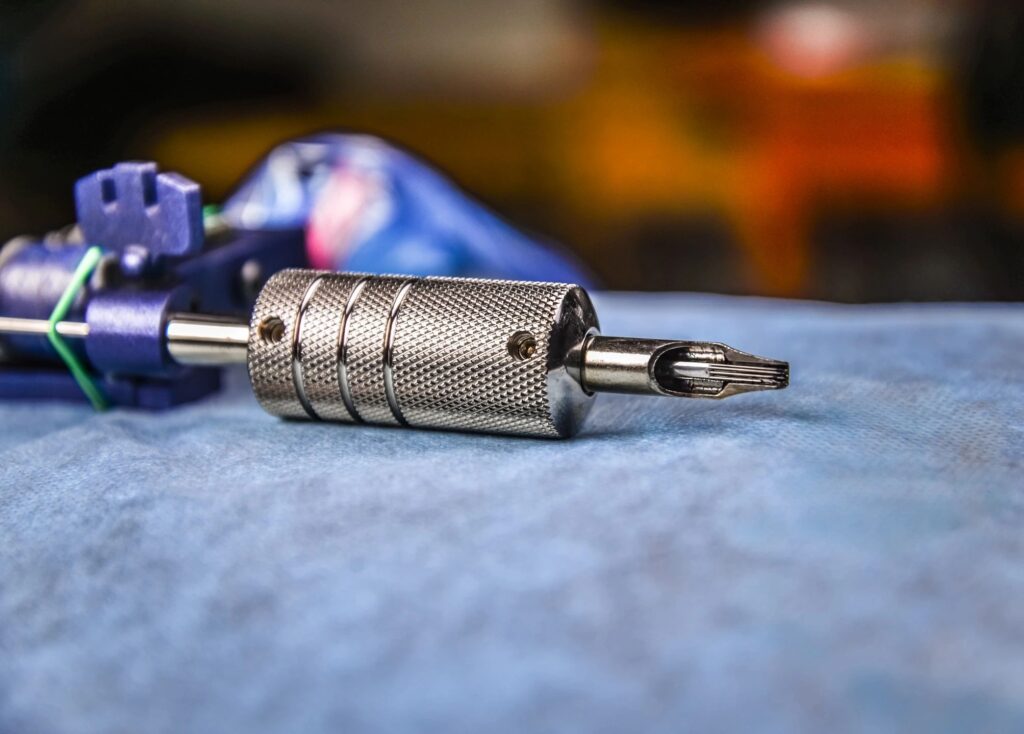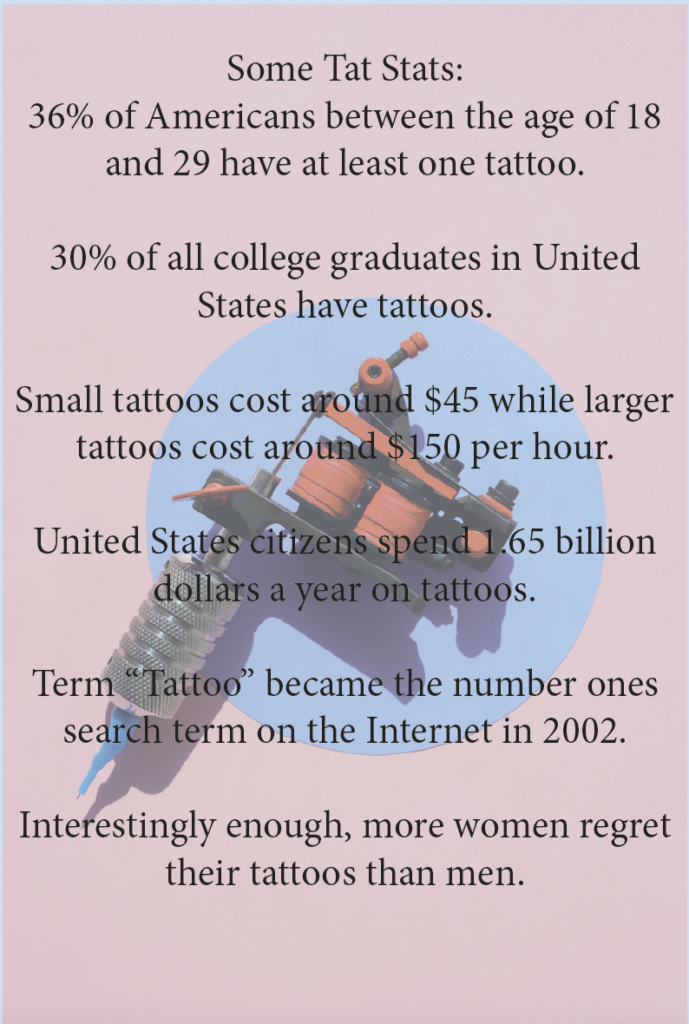
Tattoos and piercings in regards to Christianity
Kayden Rowell, Contributing Writer
Tattoos and Piercings– what crosses the line when Christianity is involved? Body jewelry and tattoos for either aesthetic or sentimental reasons prompt discourse among Christians. The intent behind getting tattoos and piercings is not only important but crucial for believers to be mindful of.
A quick refresher.
As far as definitions of tattooing and piercing are concerned, it is wise to know what is being done to the skin. Tattooing is the process of making punctate abrasions on the epidermis caused by gunpowder grains that are partly burned or unburned. These marks, words, or designs are intentionally fixed into the skin.
Piercing is the insertion of jewelry or a ring into a small hole in the skin, usually outside the ear. How does a needle piercing work? When piercing with a cannula needle, no tissue is removed, but rather space is created in the skin for the jewelry to sit in..These piercing insertions can close up over time if not taken care of properly, so the permanence of these is up to the individual.
Self-expression and personal preference.
Even in a Christian environment, such as private universities like North Greenville University, many college students get piercings or tattoos. Clayton Stancil, a junior at NGU, has a few tattoos of his own. “It is a form of self-expression. Tattoos and piercings have been around for a long time, and so has religion,” Stancil said. Self-expression comes in many forms. A personal sense of style, fashion, interests, tattoos, and piercings are what create a sense of individuality.
A desire for individuality is what most college students experience once out of the confines of home. Getting a single tattoo or a couple of piercings will not completely alter the way people perceive one another. Yet, for either sentimental or aesthetic purposes, it is still meaningful to the individual that has those tattoos or piercings.
Trinity Bollinger, a sophomore at NGU, has a small biblical tattoo and multiple piercings. “I personally would not get tons of tattoos over my body, but I do know that Leviticus 19:28 says ‘Ye shall not make any cuttings in your flesh for the dead, nor print any marks upon you: I am the Lord.’” Bollinger continued, “I do like the idea of having every tattoo represent something biblical… I think it’s good to show your love for God,” she continued. She believes that everything that is done should be with respect and modesty towards the body that God gave her.
Bollinger has about 10 piercings in total on her ear. These aren’t gauges, spikes, or anything that stretches the earlobe. She prefers dainty jewelry and a more simple pairing with her earrings.“I just really like the way the earrings look. I think they’re really pretty,” Bollinger said, smiling. Her typical pairing is small gold hoops and a couple of diamonds. When picking out earrings she looks for something beautiful, simple, and nice to look at.
Different people come from different backgrounds.
Growing up in a household or cultural environment where things such as this are normalized will most likely not align with others from more conservative backgrounds. For Bollinger, her father is covered in tattoos. “I don’t see them as a sin. There certainly is a line between right and wrong when it comes to the intention behind them,” Bollinger said. She has a tattoo herself and multiple piercings on each ear. Having these does not negatively affect her Christianity or her relationship with the Lord. In fact, her tattoo is a reference to a Bible verse that means a lot to her.
In contrast, Meghan Mosher, a sophomore at NGU, did not grow up in a household where tattooing and multiple piercings were common. “I don’t see people differently because of their tattoos… If someone has a tattoo, especially if it’s a Christian tattoo, I see it as a declaration of faith,” Mosher said. She knows that if she ever got a tattoo or more piercings, her parents would not judge her for it. “If I ever got more piercings, they would be fine with it. I think what matters is whether the tattoo or piercing is tasteful or not.” Mosher said, smiling.
What Scripture says.
Taking a look at what the Bible says about tattoos and piercings can help direct Christians to where they stand on the topic of body jewelry and tattooing. Scriptural and historical context is important to keep in mind. Yet, just because society changes does not mean Christians should change with it.
Referring back to Leviticus 19:28, “Ye shall not make any cuttings in your flesh for the dead, nor print any marks upon you: I am the Lord.” Historically speaking, this was a warning against pagan practices of mourning the dead. At funerals, Pagan rituals such as cutting and tattooing were believed to assist in passage to the afterlife. Tattooing and piercing for the dead are banned by Old Testament Law.
The Bible mentions body jewelry quite a bit. In doweries and as currency, jewelry was worn on the body for marriage and as a means of exchange. Scripture does not specifically address piercings in the context of right or wrong. Historically, piercings were a common practice both before and after the implementation of Levitical law.
Have mindful expression
There is often a misconception about the interpretation of scripture when referring to marking the body. The Bible does not outright ban getting tattoos or piercings, but rather forbids it against the intent and meaning behind it.
Scripture states the reasoning behind forbidden pagan rituals but does not address every other instance of tattooing or piercings. Christians are to be mindful of the intent behind any tattoo or body jewelry. Whether it be cultural significance or for aesthetic purposes, be wary of who or what it is being done for.
http://www.historyoftattoos.net/tattoo-facts/tattoo-statistics/

